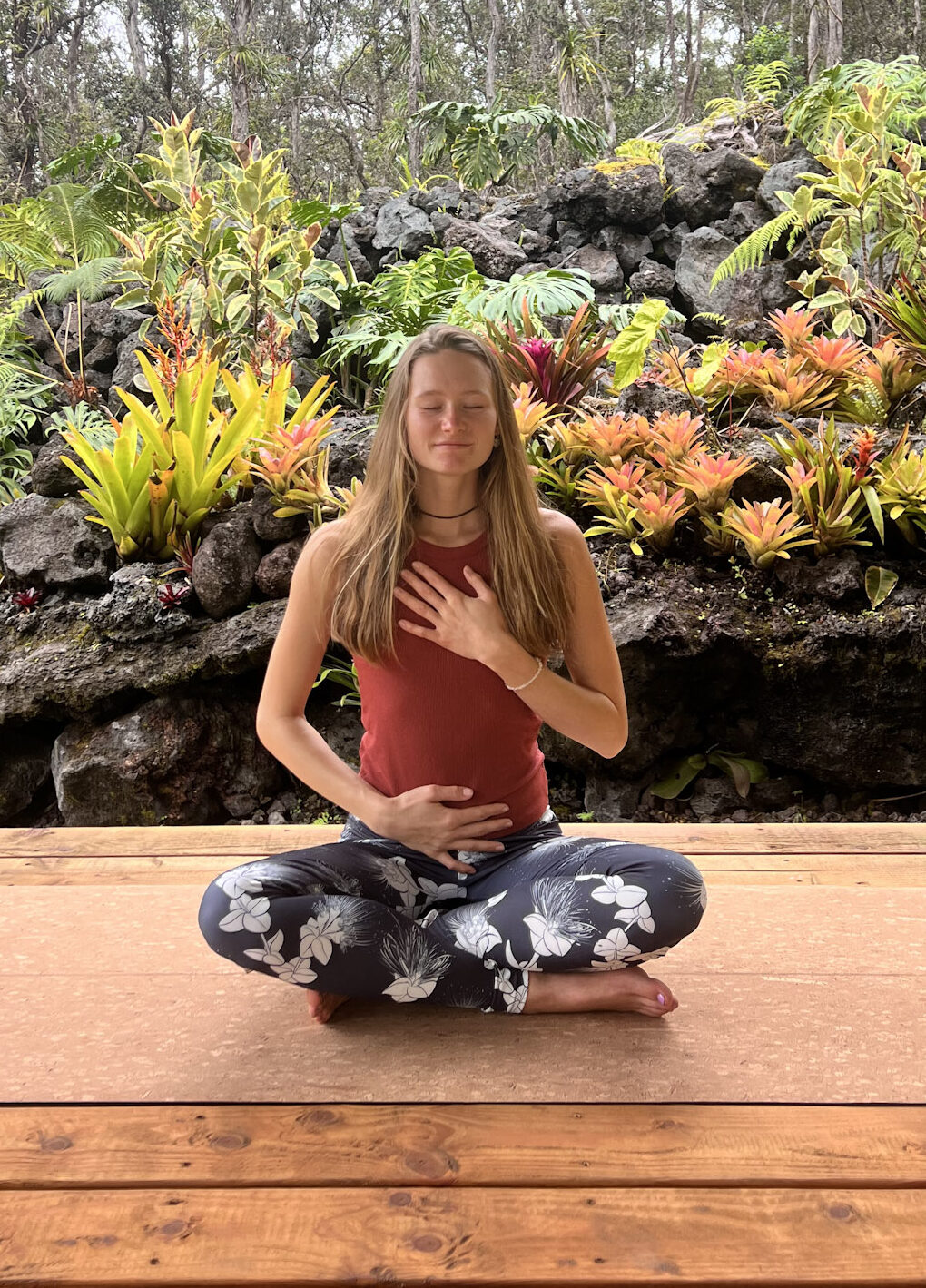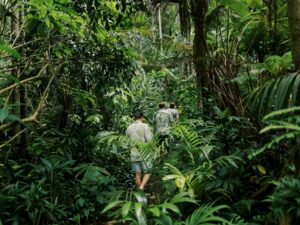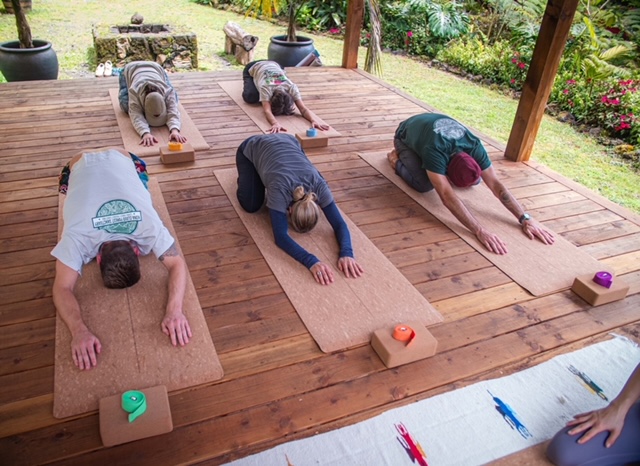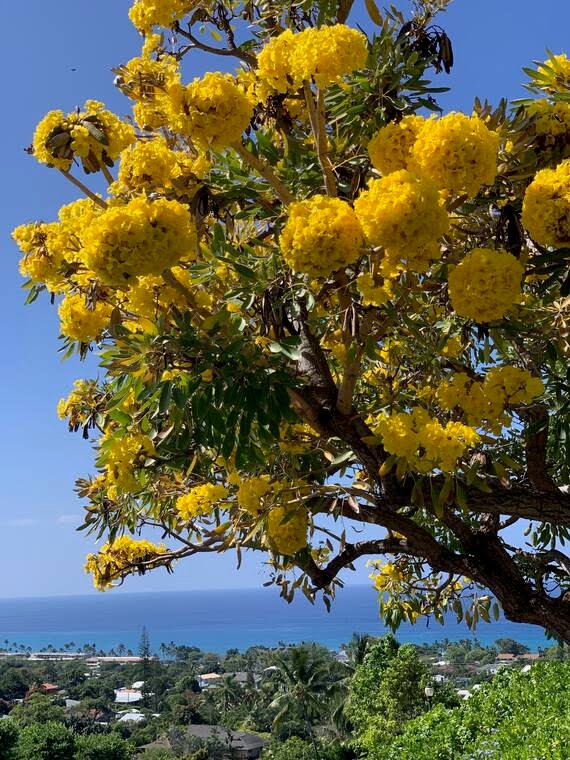Introduction
Join us as we delve into the essence of Mālama ʻĀina and its profound connection to nurturing our mental health, especially as we celebrate Mental Health Awareness Month. Mālama ʻĀina is a Hawaiian phrase that encapsulates the deep-rooted principle of caring for and respecting the land. As we explore the intricate bond between nature and mental well-being, we unravel the significance of incorporating nature into our daily lives for fostering positive mental health outcomes.
Understanding Mālama ʻĀina
What does Mālama ʻĀina mean?
Mālama ʻĀina, originating from Hawaiian culture, embodies the notion of stewardship towards the land. It encompasses the responsibility to protect, preserve, and sustain the environment for future generations. This principle underscores the interconnectedness between humanity and nature, emphasizing the reciprocal relationship where caring for the land fosters personal well-being.
Connection to Mental Health Awareness
As we make our way through Mental Health Awareness Month, Mālama ʻĀina takes on a profound significance. It serves as a guiding principle for nurturing our mental health by fostering a harmonious relationship with nature. Recognizing and honoring this connection can significantly contribute to enhancing mental well-being and promoting overall wellness.
The Importance of Nurturing Our Mental Health
Impact of Mental Health on Overall Well-being
Maintaining good mental health is integral to achieving overall well-being. Mental health encompasses emotional, psychological, and social well-being, influencing how individuals think, feel, and act. Neglecting mental health can lead to stress, anxiety, depression, and an overall decreased quality of life.
Role of Nature in Mental Health
Nature plays a pivotal role in supporting and promoting mental health. Research suggests that spending time in natural environments can have profound therapeutic effects, alleviating stress, improving mood, and enhancing cognitive function. By immersing ourselves in nature, we can rejuvenate our mental and emotional states, fostering a sense of peace, tranquility, and connection.
Exploring the Benefits of Nature
Psychological Benefits of Spending Time in Nature
Nature offers a myriad of psychological benefits that contribute to overall well-being. Exposure to natural environments has been linked to reduced levels of stress, anxiety, and rumination. The sights, sounds, and smells of nature evoke positive emotions, promoting relaxation and emotional balance.
Physical Benefits of Outdoor Activities
Engaging in outdoor activities amidst natural surroundings not only uplifts the spirit but also enhances physical health. From hiking and gardening to simply enjoying a leisurely stroll in the park, outdoor activities offer opportunities for exercise, sunlight exposure, and vitamin D absorption. These activities contribute to improved cardiovascular health, strengthened immunity, and increased vitality.
Nature’s Influence on Mental Well-being
Stress Reduction
Nature serves as a sanctuary from the hustle and bustle of daily life, offering a serene escape from stressors. The tranquility of natural landscapes, coupled with the rhythmic sounds of flowing water or rustling leaves, promotes relaxation and stress relief. Spending time in nature allows individuals to unwind, recharge, and rejuvenate their minds and bodies.
Mood Enhancement
The beauty of nature has a profound effect on mood regulation, eliciting feelings of joy, awe, and gratitude. Natural scenery, such as expansive vistas, vibrant flora, and diverse wildlife, captivates the senses and uplifts the spirit. These positive experiences in nature elevate mood, instill a sense of wonder, and foster emotional well-being.
Increased Creativity
Nature serves as a boundless source of inspiration for creative endeavor. Immersion in natural environments stimulates imagination, curiosity, and innovation. Whether through artistic expression, problem-solving, or imaginative play, nature ignites the spark of creativity, enabling individuals to tap into their innate talents and potentials.
Incorporating Nature into Daily Life
Tips for Integrating Nature into Daily Routines
Incorporating nature into daily life is essential for reaping its mental health benefits. Simple practices such as taking short walks in nearby parks, gardening, or enjoying meals outdoors can infuse daily routines with doses of nature’s healing power. Prioritizing time in nature cultivates a sense of balance, vitality, and connection to the natural world.
Urban Nature Solutions
Even in urban environments, opportunities abound for connecting with nature. Urban parks, rooftop gardens, and community green spaces offer accessible retreats amidst the concrete jungle. City dwellers can embrace urban nature solutions by seeking out green spaces, participating in outdoor activities, and advocating for green initiatives in their communities.
Mindful Practices in Nature
Mindfulness Exercises Outdoors
Practicing mindfulness in natural settings enhances awareness, presence, and inner peace. Mindful activities such as meditation, yoga, or simply mindful walking in nature promote deep relaxation and mental clarity. By immersing ourselves in the present moment and attuning to the sights, sounds, and sensations of nature, we cultivate a sense of grounding and serenity.
Connecting with Natural Surroundings
Developing a deeper connection with natural surroundings fosters a sense of belonging and interconnectedness. Engaging all the senses—seeing, hearing, touching, smelling, and even tasting nature—deepens our appreciation for the beauty and intricacy of the natural world. By forging a meaningful connection with nature, we nurture our spiritual well-being and enrich our lives.
Community Engagement for Mental Health Awareness
Group Nature Activities
Engaging in group nature activities fosters camaraderie, support, and social connection. Participating in outdoor group activities such as nature walks, picnics, or conservation projects strengthens bonds and promotes a sense of belonging. These meaningful experiences in nature with others enhances one’s mental well-being and helps cultivate a sense of community.
Connecting with Green Spaces
Accessible Green Spaces in Urban Areas
The access to green spaces in urban areas is essential for promoting mental health and well-being. Parks, gardens, and greenway trails offer urban residents opportunities for recreation, relaxation, and connection with nature. These accessible green spaces contribute to community health, environmental sustainability, and social equity.
Importance of Parks and Gardens
Parks and gardens serve as vital green lungs within urban landscapes, providing havens of biodiversity and natural beauty. Urban green spaces offer respite from the stresses of city life, promoting physical activity, mental relaxation, and social interaction. Preserving, enhancing, and building new parks and gardens enhances urban livability and fosters ecological resilience for metropolitan communities.
Sustainable Living for Mental Well-being
Eco-friendly Habits for Mental Health
Embracing sustainable living practices not only benefits the environment but also supports mental well-being. Simple actions such as reducing waste, conserving energy, and minimizing carbon footprint contribute to a healthier planet and a happier life. Living in harmony with nature helps foster a sense of purpose, fulfillment, and ecological stewardship to the natural world.
Connection Between Environmental and Mental Health
The connection between environmental health and mental health underscores the importance of ecological awareness and conservation. Environmental degradation, climate change, and loss of biodiversity have profound implications for human well-being, exacerbating stress, anxiety, and social inequities. Promoting sustainable lifestyles and environmental advocacy is essential for safeguarding mental health and planetary health.
Conclusion
Nurturing our mental health is paramount, especially in celebration of Mental Health Awareness Month. Embracing Mālama ʻĀina—the principle of caring for the land—offers a holistic approach to mental health and well-being. By connecting with nature, fostering resilience, and building supportive communities, we can cultivate a positive mindset and lead fulfilling lives. Let us embark on a journey of self-discovery, mindfulness, and environmental stewardship, embracing the transformative power of Mālama ʻĀina for our collective well-being.
FAQ’s
How does spending time in nature benefit mental health?
Spending time in nature helps to reduce stress, anxiety, and depression, boosts mood, and enhances overall well-being.
What are some simple ways to incorporate nature into daily routines?
Take short walks in the park, spend time in backyard gardens, enjoy meals outdoors, or bring indoor plants into living spaces.
Can community engagement enhance mental health awareness?
Yes, engaging in community-driven initiatives like mental health campaigns and support groups promotes social connection and reduces stigma surrounding mental health issues.
How does nature contribute to building emotional resilience?
Nature provides opportunities for solitude, self-reflection, and emotional healing, fostering adaptability, perseverance, and acceptance.
What are some accessible green spaces in urban areas?
Urban parks, botanical gardens, community gardens, and greenway trails offer opportunities for recreation, relaxation, and connection with nature in cities.
How do sustainable living practices support mental well-being?
Sustainable living practices promote a sense of purpose, fulfillment, and ecological stewardship, fostering a deeper connection to the environment and reducing eco-anxiety.
Are you looking for a one of a kind experience on your next trip to the Island of Hawai’i? Come see us at the Cloud Forest Sanctuary! Enjoy guided Mindful forest experiences in the only seasonally dry tropical cloud forest in the United States. Relax with a sound bath meditation session, experience yoga, learn about forest conservation, or participate in our workshops and events. Hope to see you soon!








